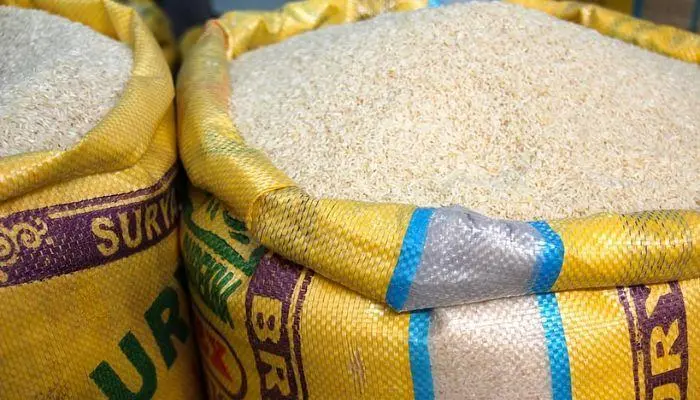The Minister of Agriculture and Food Security, Abubakar Kyari, on Friday, said the Federal Government had commenced the massive production of food crops in order to bring down the prices of food items across the country.
He said the target of the government was to reduce food inflation, describing it as the major reason for the high rate of inflation in Nigeria’s economy.
Kyari disclosed this to journalists after hosting the Governor of Jigawa State, Umar Namadi, at the headquarters of the Federal Ministry of Agriculture and Food Security in Abuja.
He said, “We have programmes to ensure massive production of food so that food will be available for the country in line with Mr President’s agenda on food security. We also intend to massively produce so as to bring down food inflation.
“This is because today, the number one driver of inflation in the economy is food inflation. So we want to assiduously work hard to produce massively. Mr President has given us the support that we need and we are going to wrap it up, starting with rice production.”
Asked to state how soon the ministry would deliver these programmes, the minister replied, “We have started already. Within the next three weeks, everything should be in place.”
On whether the cost of food would reduce soon, based on the massive crop production programme of the government, Kyari said, “It is based on the market forces of supply and demand. So if we increase supply, definitely there will be an impact.”
He stressed that the government was working to increase supply, as this would impact positively on the cost of food items across the country soon.
The latest Consumer Price Index: November 2023’ report released by the National Bureau of Statistics in December 2023 stated that Nigeria’s food inflation rate increased to 32.84 per cent.
The cost of food rose highest in Kogi, Kwara and Rivers where food inflation in each state surged to 41.29 per cent, 40.72 per cent, and 40.22 per cent respectively.
The food inflation rate in November was 8.72 percentage points higher than what was recorded in November 2022 (24.13 per cent).
The report showed that the rise in food prices was caused by increases in the prices of bread and cereals, oil and fat, potatoes, yam and other tubers, fish, fruit, meat, vegetables and coffee, tea and cocoa.
The NBS said, “On a month-on-month basis, the food inflation rate in November 2023 was 2.42 per cent, this was 0.51 per cent higher compared to the rate recorded in October 2023 (1.91 per cent).”
Meanwhile, on food production in Jigawa State, the agric minister said, “We are impressed with the performance of Jigawa State and we are also sending monitoring teams to get feedback from the other states. I am sure we are going to achieve our target.”
SOURCE: PUNCHNG











